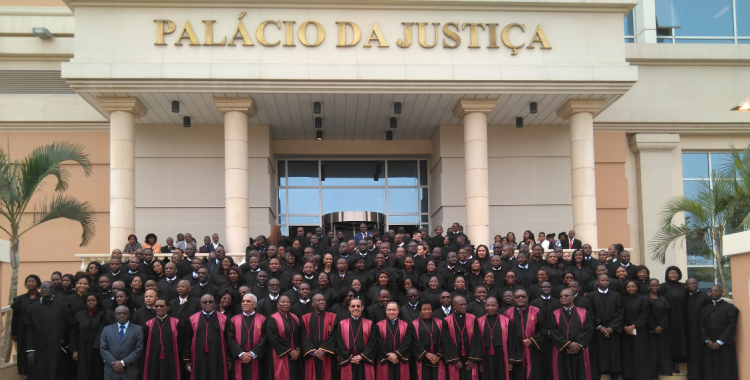The executive's legislative initiative proposal passed this Thursday in the sieve of deputies unanimously with 147 votes in favor, none against and no abstentions during the new extraordinary plenary meeting taking place in the National Assembly.
According to the Secretary of State for Human Rights and Citizenship, Ana Celeste Januário, the proposal aims to adapt the Organic Law of the Supreme Court "to the new judicial organization" approved by the Law on the Organization and Functioning of the Courts of Common Jurisdiction.
To guarantee the "effectiveness of a new framework" of Supreme Court judges in the recruitment of staff, to cope with the increase in the number of judges in the Supreme Court, and "improve the quality and speed of decisions" of the body are some of the purposes of the initiative.
Ana Celeste Januário said that the legal instrument proposes an increase from 21 to 31 counsellor judges "notwithstanding the fact that the relationship courts will start functioning in the next few days on a gradual basis".
"A large part of the cases that today go to the Court of Appeals will soon be assessed and decided by the Courts of Appeal", she said.
The Secretary of State for Human Rights and Citizenship also made it known that currently there is an "excessive number of cases" for each of the Counselor Judges of the different chambers of the Supreme Court, "which varies between 77 and 298 cases".
For this governor, with the entry into operation of the Courts of Appeal in the country there should be a "substantial reduction" in the number of cases to be judged by the Supreme Court, "leaving each judge counselor with a number of no more than 50 cases in each judicial year," which will improve the quality of judgments, admitted Ana Celeste Januário.
The bill also sets a limit on the number of cases for one of the judge-counselors, namely 200 cases for the civil chamber, the same number for the criminal chamber, as well as 250 cases each for the labor, administrative tax and customs, and family and juvenile justice chambers.
An "itinerant judge", recruited from among the judges of other chambers with a reduced caseload, is also provided for in the event that the number of cases distributed by each of the counselor judges "exceeds 50 percent of what is fixed".
The "independent" deputy, Carlos Candanda, said that the law now approved will allow "to strengthen the TS in the construction of a plural democracy" in the country, considering, however, the judicial power as "the weakest link" of the Angolan democracy.
Lucas Ngonda, member of the National Front for the Liberation of Angola (FNLA), defended the "greater speed" of the processes submitted to that instance, having affirmed that the delay of the processes "is a criminal form of denial of justice".
For Virgílio Tchova, a member of parliament from the ruling Popular Movement for the Liberation of Angola (MPLA), who highlighted the introduction of the family and juvenile justice chamber, the proposal "is necessary and opportune" and "is only delayed.
The National Union for the Total Independence of Angola (UNITA) deputy, Raul Tati, considered that the bill deserves his party's appreciation, noting that the independence of the courts "is one of the most hyped problems of justice" in Angola.
The deputies are also discussing the draft law on the Organization of the Courts of Appeal and the draft law on the Organization and Functioning of the Judicial and Administrative Secretariats and Technical Support Services for Magistrates.







